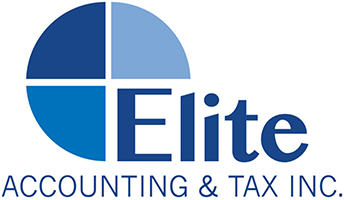Effective tax planning is crucial for medical professionals who want to maximize their savings and reduce their tax liabilities. As tax laws change and evolve from time to time, staying informed and proactive can make a significant difference. In this blog, trusted tax planning and preparation firm Elite Accounting & Tax explores various strategies that can help medical professionals save on taxes in 2024.
Understanding the Tax Landscape for Medical Professionals
Medical professionals, including doctors, dentists, and other healthcare providers, face unique tax considerations. High income levels, significant expenses, and complex regulations can pose challenges. Staying updated with the latest tax laws and leveraging available tax-saving opportunities is essential for financial health and compliance.
Tax Planning Strategies for Doctors and Other Medical Professionals and Practices
Strategy 1: Maximize Retirement Contributions
One of the most effective ways to reduce taxable income is by maximizing contributions to retirement accounts. Medical professionals can choose from various retirement plans, such as 401(k), SEP IRA, and SIMPLE IRA. For 2024, the contribution limits have increased, allowing more opportunities for tax-deferred growth. For example, the 401(k) contribution limit is $22,500, with an additional catch-up contribution of $7,500 for those aged 50 and above.
Strategy 2: Utilize Tax Deductions
Medical professionals can benefit from numerous tax deductions, including continuing education, professional dues, and malpractice insurance. Properly documenting and claiming these deductions can significantly reduce taxable income.
To maximize deductions, keep detailed records of all eligible expenses throughout the year. For a comprehensive list of deductible expenses, visit the IRS website.
Strategy 3: Take Advantage of Tax Credits
Tax credits directly reduce the amount of tax owed and can be more valuable than deductions. Relevant tax credits for medical professionals include the Lifetime Learning Credit and the American Opportunity Credit, which can help offset education-related expenses. Ensure you meet the eligibility requirements and claim these credits to lower your overall tax liability.
Strategy 4: Optimize Business Structure
Choosing the right business structure can have a significant impact on tax liabilities. Medical professionals can operate as sole proprietors, LLCs, or S corporations, each with distinct tax implications. For instance, S corporations can provide tax advantages by allowing income to be split between salary and dividends, potentially reducing self-employment taxes. Consult with a tax professional to determine the best structure for your practice.
Strategy 5: Plan for Equipment and Technology Investments
The Section 179 deduction allows medical professionals to deduct the full cost of qualifying equipment and technology purchases in the year they are placed in service. This can provide substantial tax relief for practices investing in new medical equipment or technology. Timing these investments strategically can maximize the tax benefit.
Strategy 6: Consider Hiring Family Members
Employing family members in your practice can offer tax benefits, such as income splitting and additional deductions. However, it’s important to follow IRS guidelines and regulations to avoid potential issues. Proper documentation and fair compensation are key to ensuring compliance.
Strategy 7: Keep Accurate and Detailed Records
Maintaining accurate financial records and receipts is essential for effective tax planning for medical professionals. Utilize tools and software to streamline record-keeping and ensure all deductible expenses are properly documented. This not only helps in claiming deductions but also prevents issues during audits .
Get Professional Tax Planning and Preparation Services for Medical Professionals
Implementing these tax planning strategies can help medical professionals save more in 2024. By maximizing retirement contributions, utilizing deductions and credits, optimizing business structure, planning equipment investments, considering family employment, and keeping detailed records, you can reduce your tax liabilities and enhance your financial health.
For personalized assistance with tax planning for medical professionals in Orland Park, IL, contact Elite Accounting & Tax. Our experienced team can provide tailored tax services and advice to meet your specific needs and help you navigate the complexities of the tax landscape.
You may also directly book a consultation with our CPA, Khaled Alatyieh, HERE. Get started now!
Check out these resources:


